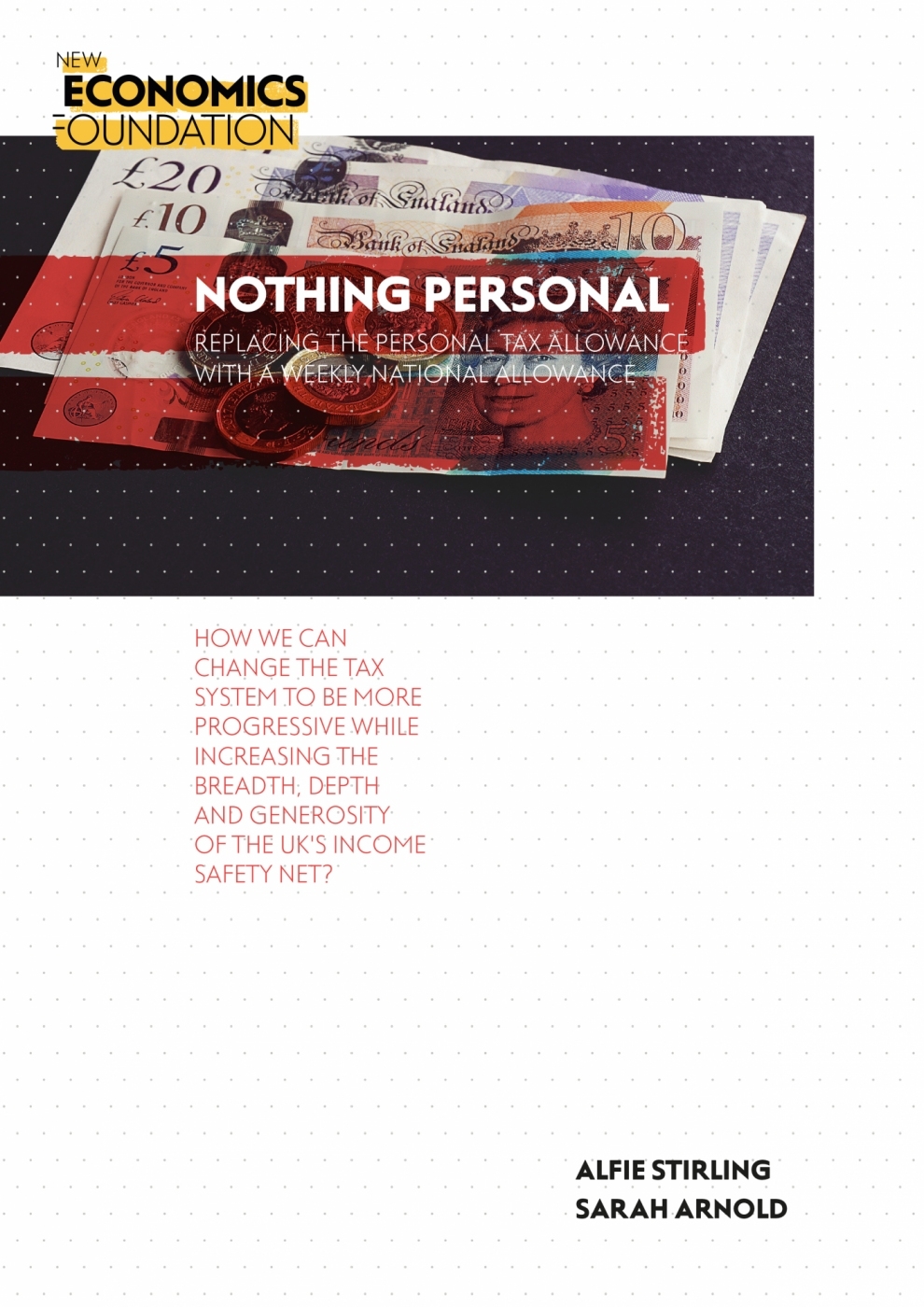Talking Points: March 2019
Posted on 03 Apr 2019 Categories: Blog, Talking Points
by Rethinking Poverty
New economic models feature prominently in this month’s Talking Points. The publication of new reports from NEF and Compass has revived the debate about universal basic income vs universal basic services. March has also seen two new reports on inclusive growth and an article re-assessing the role of wellbeing in new economics.
Universal Basic Income or Universal Basic Services?

On 16 March the New Economics Foundation (NEF) launched a new report advocating scrapping the personal tax allowance and giving almost everyone £48 a week, which they claim would lift 200,000 families out of poverty. Two days later came a report from Compass, written by Stewart Lansley and Howard Reed, called Basic Income For All: from desirability to feasibility, demonstrating how a basic income could be introduced immediately, how it would transform our economy and our society, and how it is affordable. ‘For the first time, there would be a guaranteed income floor below which no individual would fall, and that would gradually rise over time.’
But there has to be a trade-off. ‘NEF’s proposal, the weekly national allowance, is not a universal basic income, nor is it intended to be a first step towards one,’ points out NEF’s Alfie Stirling. In NEF’s view, ‘Improving livelihoods through free transport, childcare, internet and housing would likely be more efficient and longer-lasting when compared pound-for-pound with handing out more cash.’
An article on the UBS Hub called Can we have UBS and UBI? argues that there is only a certain amount of ‘fiscal space within which we must fashion our solutions for a prosperous society’, and UBS and UBI together will not fit into this space. Given the need to prioritise, the proposals for UBS in the IGP report represent far better value in terms of benefits to society, in their view.
Is inclusive growth the answer?
New research from JRF shows that to loosen the grip of poverty for people stuck in low-paid, poor-quality work, or unable to find a job, Local Industrial Strategies must have inclusive growth at their heart, while a new report from the RSA called Inclusive Growth in Action presents examples from the UK, the US, South Korea and Barcelona, among other places.
But are we talking about an inclusive economy or inclusive growth? CLES’s David Burch and Neil McInroy argue that what we need is an inclusive economy – something that is being developed in Preston (check out Aditya Chakrabortty’s update on what’s happening there).
Does new economics need wellbeing?
Although NEF’s Five Ways to Wellbeing have been useful to many, and are mostly not damaging (faint praise?), says Annie Quick, what they lack is a serious analysis of power – ‘an understanding of whose interests are served by our current economy and what it will take to seriously rebuild it’. The Five Ways aren’t going to tackle predatory loans, the housing crisis or local authority cuts without this. ‘Without a power analysis, we don’t have a theory of change.’
Too poor to play?
On 25 March Harriet Grant reported in the Guardian that London developer Henley Homes had segregated play areas for richer and poorer residents of its new multimillion-pound housing development in south London. The designs for ‘common areas for the use of all the residents’ were altered after planning permission had been granted.

This particular story has a happy ending: two days later the Guardian reported that ‘segregated playground developer now says all children are welcome’. Shame and public pressure succeeded where planning regulations had failed. But this is clearly not an isolated problem. Robert Booth and Aamna Mohdin report that people living in shared ownership homes are being denied access to open spaces, car parks, gymnasiums and swimming pools, fuelling complaints of housing segregation.
A four day week?
Is this the age of the four-day week? asks Robert Booth. The Wellcome Trust may be the biggest UK employer to join the trend when it announced it was exploring switching 800 head-office staff to a three-day weekend but it seems that dozens of UK firms are trying out shorter working hours – and finding it’s good for workers, customers and the bottom line.
More bad news on poverty …
It would be a great thing if Talking Points were ever able to get rid of this heading … but not this month. While the BBC reports head teachers saying schools in England are having to ‘pick up the pieces’ for families in poverty, the Guardian reports that MPs are to launch an inquiry into ‘survival sex’ where benefit claimants impoverished by universal credit or sanctions have turned to prostitution to pay rent or feed their families.
On 28 March publication of the government’s annual Households Below Average Income data showed that 30 per cent of UK children are in poverty. The data also show an increasing proportion of children in poverty who have a parent in work. Twenty years ago, most non-pensioners whose income was below the official poverty line were in a household where no one was in paid work. Now, more than two-thirds of such people are either in work or live with someone who is.
More bad news for the working poor: parents will be forced to pay higher fees for childcare this year because of a lack of government funding.
A new human right and a new international crime?
Capitalism is destroying the earth. We need a new human right for future generations, says George Monbiot, something like this: ‘Every generation shall have an equal right to the enjoyment of natural wealth.’ This should take the place of colonists’ assumed rights to take ownership in perpetuity of whatever land they occupy, thereby preventing all future claimants from gaining natural wealth by the same means (see also Jason Hickel’s excellent blog on the role of enclosure in the growth of capitalism).
‘The destruction of the Earth is a crime. It should be prosecuted. Businesses should be liable for the harm they do,’ says Monbiot, reporting on barrister Polly Higgins’ push to make ecocide an international crime.

One thing we can all do to address climate change – surely the biggest threat to the future of our planet – is to buy local food and other local products. The way trade works in the global economy can be insane, maintains Local Futures. ‘It wastes resources, worsens climate change, and undermines the livelihoods of millions of small-scale producers worldwide.’ Local Futures has added an ‘insane trade’ page to its website, including a short film that highlights the absurdity of ‘insane trade’ in a humorous way and a detailed factsheet that covers the issue in greater depth. The key message: ‘Say YES to Local Economies. Localizing helps small farms and local businesses to thrive, strengthens community, and supports personal well-being.’
‘Talking Points’ is collated by Caroline Hartnell, who convenes the Rethinking Poverty blog.
Posted on 03 Apr 2019 Categories: Blog, Talking Points
